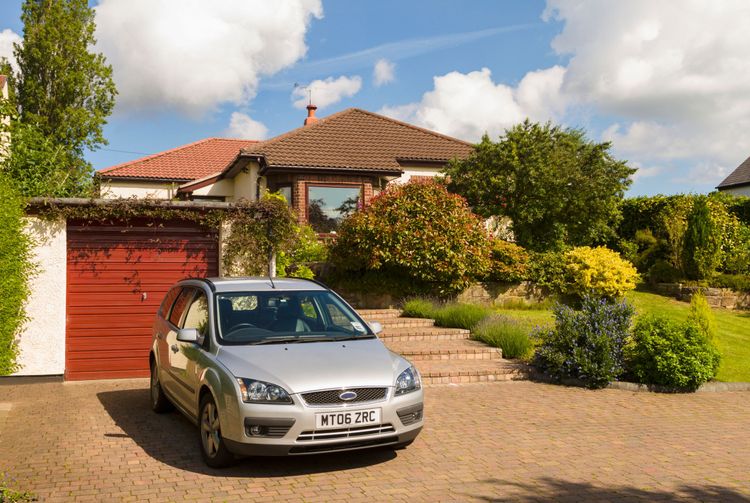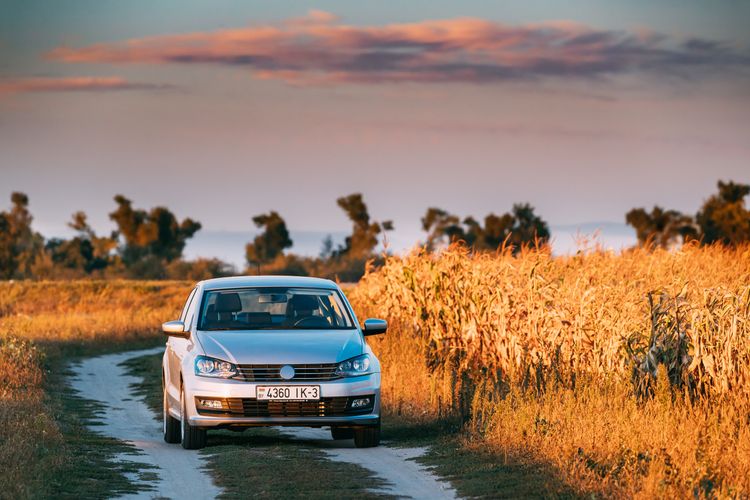Types of Roads & Highways in India
Roads are essential means of transportation and movement of goods. In India, you will find different types of roads that cater to the needs of this country’s people. The division of the types of roads depends on the location, usability, and connectivity they offer. Travelling on the roads in India can be one of the best experiences that you can have.
When it comes to travelling by road in India, it is quite safe and convenient. But, there can be an unfortunate situation where your vehicle might face an accident on the road. That is why having the right insurance for your car and bike is necessary. A motor insurance plan ensures you have a financial backup in case a mishappening occurs on the roads in India.
At Tata AIG, you can buy car insurance from the website in a few simple and efficient steps. There are many different motor insurance plans available — standalone third-party motor insurance, standalone own-damage motor insurance, and comprehensive motor insurance. You can also undertake the car insurance renewal online with ease from the comfort of your home.
Let us get into the details of the different types of roads in India.
Share this article
Protect Your Ride with the Best Car Insurance Plans
Believe it or Not! Save upto* 75% on TATA AIG Car Insurance

List of Content
- Network of Roads in India
- How Many Types of Roads in India?
- Types of Roads and Highways
- Types of Highways in India
- Importance of Highways and Roads in India
- Conclusion
Network of Roads in India
The network of roads in the country spans over 5 million kilometres, which is the second largest network of roads globally. The huge road network helps in the transportation of goods and also allows people to go from one place to another. However, all the roads are not similar and there are different types of roads in the country.
How Many Types of Roads in India?
The different types of roads in India can be classified on various parameters. Here are some of the basic parameters on which roads can be classified:
Materials
While deciding on the construction of a road, the material that is used depends on various factors like the purpose of the road and the amount of traffic that the road will be handling. Hence, there are many types of roads in India that you will see including gravel roads, cemented roads, concrete roads, etc.
Location
One of the most commonly used ways of classification of roads is the location. Based on the location, roads are classified into national highways, district roads, state highways, and rural/village roads.
Traffic
The classification of roads can also be done based on the traffic that they witness. The roads are classified as low, medium, and high-traffic roads. You also have pedestrian tracks, motor vehicle roads, and cycle tracks classified based on the purpose they serve and the traffic they receive
Topography
The types of roads and highways are also classified based on topography. India has a very diverse topography with plains, beaches, and mountains. In plains, the roads are mostly levelled which offers a smooth ride. The roads in the mountain areas are spiral in shape. Due to the extreme conditions of weather, the hilly and mountain region roads require more maintenance than the roads in the plains.
Costs
The cost of constructing a road depends on the location and purpose of the road. The engineers involved in the construction of the road conduct a detailed traffic analysis to understand the width, the best material for the construction, as well as some other aspects. On the basis of the cost, the roads are divided into - high-cost, medium-cost, and low-cost roads.
Types of Roads and Highways
The IRC or the Indian Road Congress is the prime Indian authority that looks after the development of roads in the country. The body was established in the year 1934 and consisted of some of the most highly qualified highway engineers.
According to the IRC, the types of highways and roads in India include
- National Highways
- District Roads
- State Highways
- Village/Rural Roads
Thus, this answers the questions regarding how many types of highways and roads in India.
Types of Highways in India
There are two major types of highways in India:
National Highways
National highways are essential roads that stretch between major cities in the country. Highways connect the capitals of states. Some of the main highways in India also connect the country to some of the neighbouring countries which enables us to travel to these countries through roads making some of the top-rated tourist destinations accessible.
Highways are well-constructed roads that have lights, bridges, traffic signs, etc. These are mostly wide and enable a smooth riding experience. The highways in India are denoted by ‘NH,’ and they also have codes followed by these alphabets, such as NH-1, NH-10, etc. This is one of the main types of highways in India. The national highways are classified into
- Single lane highways in India
- Double lane highways in India
- Four lane highways in India
- Six-lane highways in India
- Eight-lane highways in India
State Highways
State highways are the major roads that connect the main cities of the state. They also allow connectivity to national highways and state highways. The state highways are denoted by ‘SH’, and the alphabet is followed by the code of the state.
The states of India with some of the most highways are Karnataka, Maharashtra, Rajasthan, Tamil Nadu, and Gujarat. The state highways are maintained by the authorities of the respective states.
Importance of Highways and Roads in India
Roads are essential for the economic development of any nation. Better roads lead to better standards of living for the people and increased opportunities. Some of the reasons due to why a developed and maintained network of roads is essential are:
Food and goods transportation
Roads enable the import and export of goods and food. National highways allow the transportation of essential goods across the nation. The state highways and district and rural roads enable the transportation of goods deeper into the states and cities and even villages.
Ease of travelling
Well-constructed roads allow travelling to be safe and convenient. Roads allow people to move from one place to another using public as well private transport facilities. People can move from one place to the other for vacations, business, and other essential purposes.
Connectivity to remotest locations
Better connectivity of roads makes a huge difference in the lives of people who live in remote locations in the country. This is especially true for people who live in mountain areas. It is easier to transport essential goods using roadways to remote locations than airways, waterways, etc.
Lower costs
Roads need less capital investment for construction as compared to airways or railways. Also, they are more cost-effective when it comes to operations and maintenance as compared to some of the other modes of transportation.
Related: Highway Hypnosis
Conclusion
With every passing year, the network of roads in India is increasing. Recently, in the Union Budget, the government has promised to create a wider road network that connects every important part of the country. Good quality roads not only make travelling easy, they also boost the country's economy.
Protect Your Ride with the Best Car Insurance Plans
Believe it or Not! Save upto* 75% on TATA AIG Car Insurance
People also search for
Key Insurance term
Share this article
Latest from our blogs

Zero Depreciation Car Insurance Cover
zero depreciation / depreciation reimbursement cover reimbur...
Read More
What is Insured declared value (IDV)?
The term ‘IDV’ refers to the maximum claim your insurer will...
Read More
How is your car insurance premium calculated?
Well it’s about time that changed, don’t you think? Read on ...
Read More